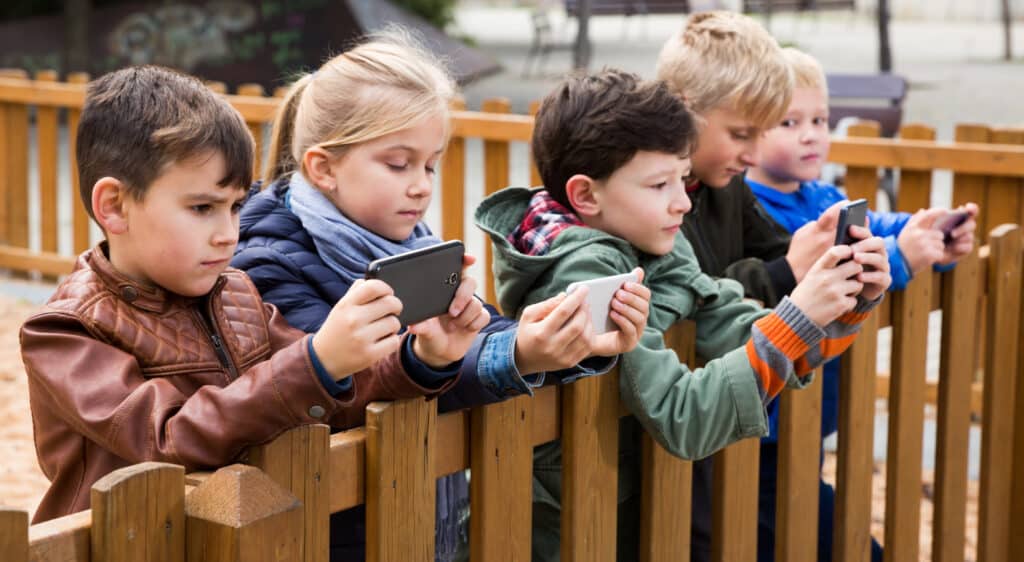BearFotos/Shutterstock
It’s no secret that the biggest battle for centennials, or the so-called “generation Z,” is related to mental health. Tendencies towards suicidal behaviors and self-harm continue to rise and the consumption of anxiolytics has skyrocketed among young people. These well-documented trends have sparked extensive debate about this generation’s well-being. And the answer to why this negative trend continues to increase generation after generation…
Perhaps the answer lies in one factor that emerged fairly recently and has been part of younger generation’s formative years that older generations never knew growing up. What if this generations declining mental health is tied to smartphones, or rather, 24-hour internet access? How warranted is demonizing the devices that generation Z grew up with, that millennials only had access to during their adolescence, and that Gen-Xers were introduced to as adults? The Global Mind Project decided to conduct a study to answer this question and shed light on whether there is a correlation between young people’s mental health and the age they received their first cell phone.

Growing up with a screen
The research was based on data collected through a survey of 27,969 people between the ages of 18 and 24 from all over the world. To control for cultural and educational factors, respondents from different countries on every continent participated. Among respondents, 62% identified as female and 36% as male, and every participant was a Gen-Zer (or between the ages of 7 and 22 in 2019).
The survey was conducted online and respondents’ identifies were kept anonymous, though the survey included a response section where they could answer questions related to their emotional well-being based on common symptoms or mental disorders, such as anxiety or depression. The study concluded that, indeed, the emotional, social and mental well-being of young people improved considerably among those who received their first cell phone later.
Suicidal thoughts, the feeling of being cut-off from reality and the desire to attack others are among the most serious problems among people who received their first cell phones at a young age
Symptoms associated with negative mental health were significantly lower among respondents who were given cell phones during adolescence, while they reached alarming rates among those who received them as children. According to the findings, the percentage of young women who experience problems with mental health drops from 74% among those given phones from the age of 6, to 46% among those who started using them at 18. Among male respondents, this percentage drops from 46% to 36%.
Feelings of guilt
The study also concluded that the problems that were most aggravated among respondents with phones from an early age are suicidal thoughts, the feeling of being disconnected or cut-off from reality and the desire to attack others. However, other symptoms associated with lower mental health were also significantly affected: hallucinations and addictions, for women, and feelings of guilt and compulsive actions in men.
The trend of better emotional well-being among the respondents who were given phones later is independent of any potential traumas survey participants may have lived through –such as abuse, and parental divorce, among others. It is clear that, for those who did face such adversities during childhood, the problems associated with getting a phone at a younger age are more pronounced, but the trend is the same.
Suicidal thoughts, the desire to harm others, and the feeling of being cut off from reality – the three symptoms the study identified as being related to acquiring a phone at an early age – are not associated with any DSM-5-recognized mental disorders, the diagnostic manual of psychiatric diseases. Therefore, the Global Mind Project researchers concluded that they represent a set of specific challenges when it comes to socializing faced by those who have grown up with having cell phones at an early age. “The younger you get a phone, the more time you’ll spend in the virtual world during your formative years—time that could be spent on face-to-face interactions, building strong relationships, or practicing social skills.”
The study leaves one question open. Today’s world isn’t the same as the one Gen Zers grew up in, (and the one the study focuses on). The pressure of being online is even greater now: virtual reality is becoming the new “reality”, and artificial intelligence is leading to a snowball effect, as technology is available to everyone. How can children be protected from the symptoms associated with overexposure to the internet from an early age, without, in turn, being denied interaction with the world in which they live? For now, the Global Mind Project recommends we consider the “implications of this problem for the future of society.”
Translated from Spanish by Lucia K. Maher
